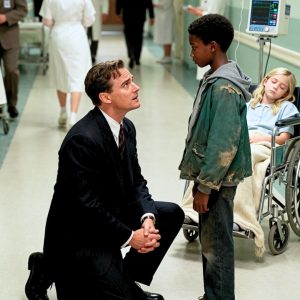On Maple Street, there lived an old woman. To most, she was invisible—just another forgotten soul tucked away in the corners of life. She had no family nearby, no friends to lean on, and no roof that truly felt like home. Each day, she sat quietly on the curb, her eyes reflecting both the weight of her years and the emptiness of her plate. People passed her by, some with pity, others with indifference, but no one stopped. No one, except me.I was just a neighbor—an ordinary person living an ordinary life. But something about her loneliness unsettled me. I began bringing her food.
At first, it was leftovers, then warm meals I made with her in mind. For four years, I delivered her plate every single day. My neighbors would watch, puzzled, whispering among themselves. To them, she was a burden. To me, she was a reminder of humanity’s test: how we treat those who can give us nothing in return.She never asked for more than what I brought. Yet in her silence, I found gratitude, and in her frailty, I found strength. What began as an act of kindness became a ritual that nourished me as much as it did her.Yesterday, she died. The street felt heavier, emptier, as though the world had lost something sacred and unnoticed. Later that evening, I received a call from an unknown number. My hands trembled as I answered.“This is the county office,” the voice said gently. “We found your number in her things. She named you as her emergency contact. She left something for you.”The old lady had turned out to be more than just a stranger. In a small box she left behind, there was no money, no valuables—just a letter written in trembling handwriting:“To the only one who saw me. You fed me food, but more than that—you fed me dignity. You gave me back my humanity. You gave me a reason to keep living. Thank you for being my family when the world forgot me.”





